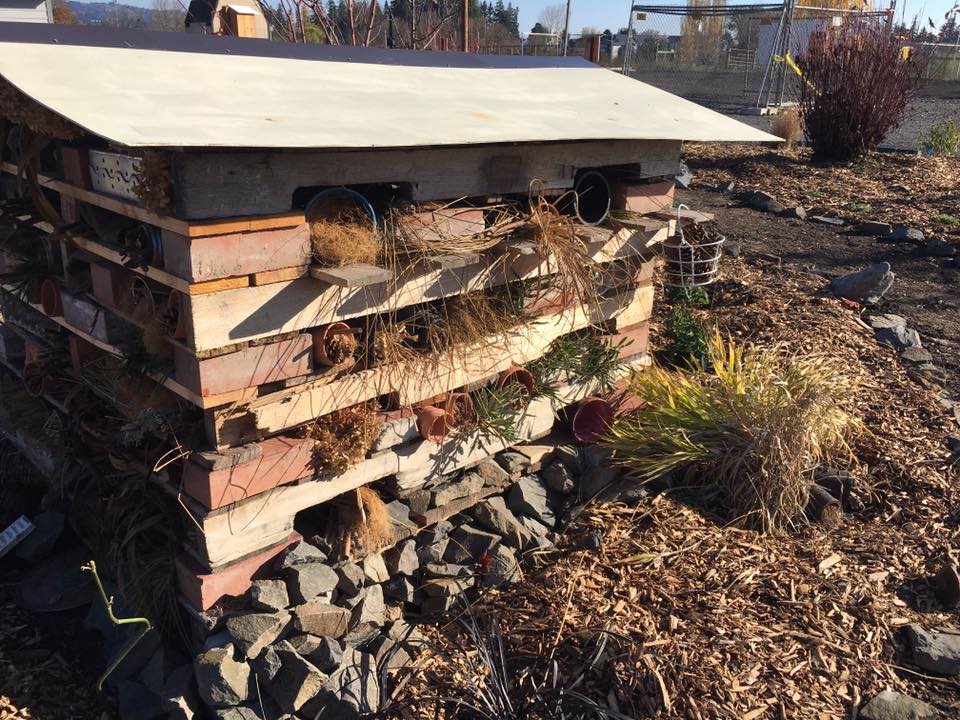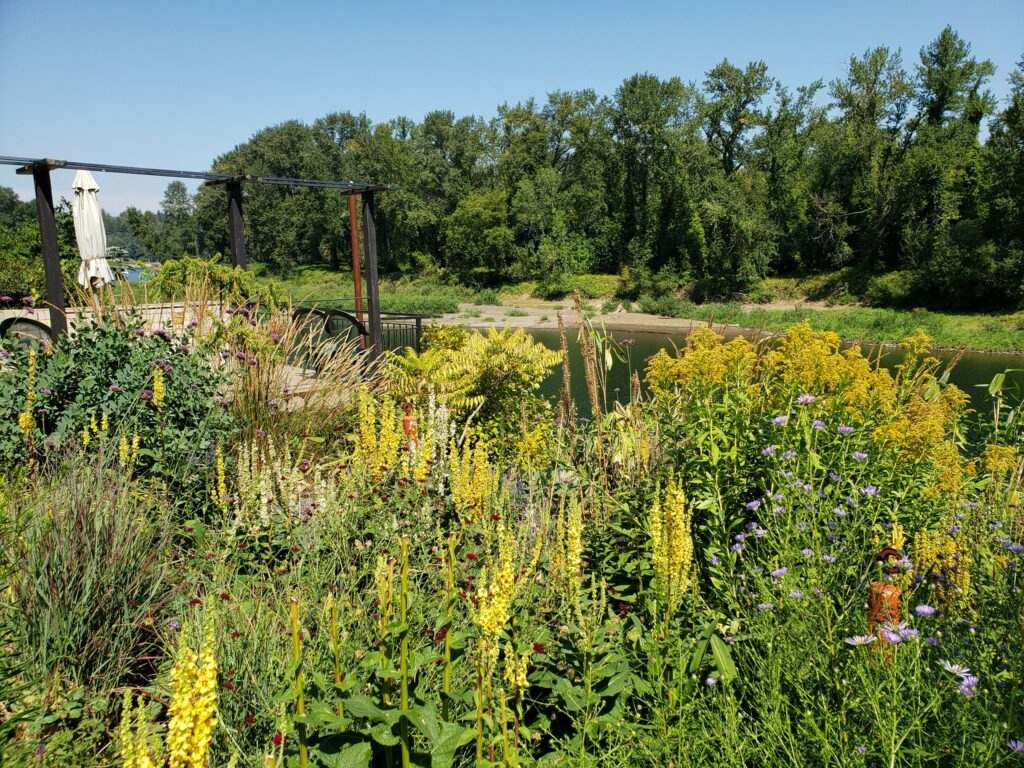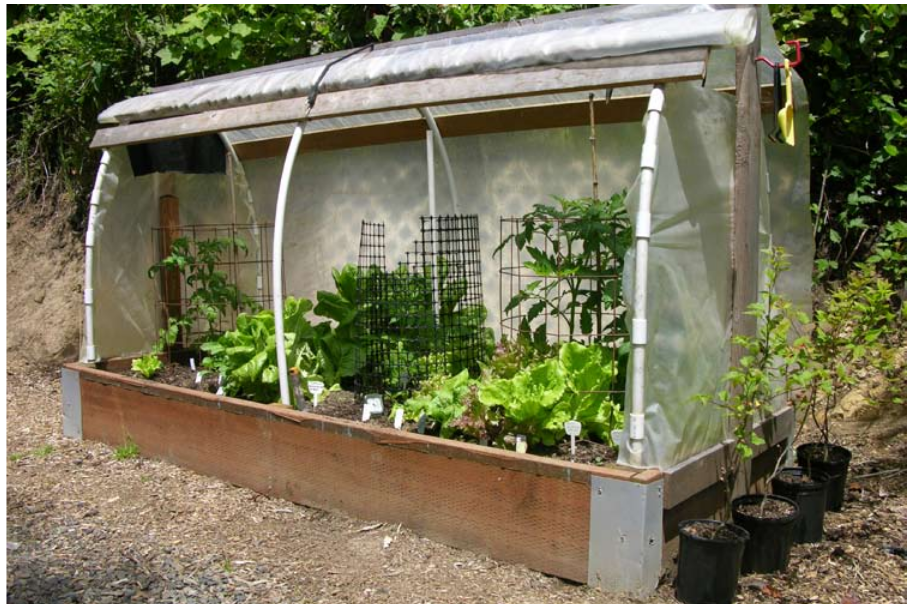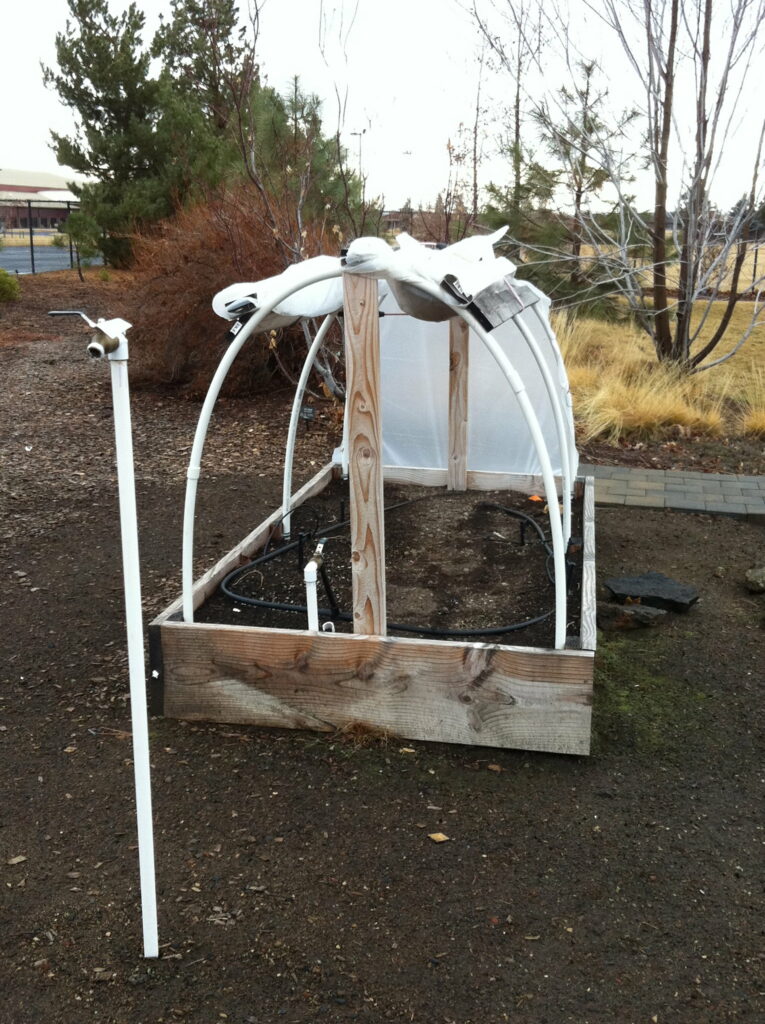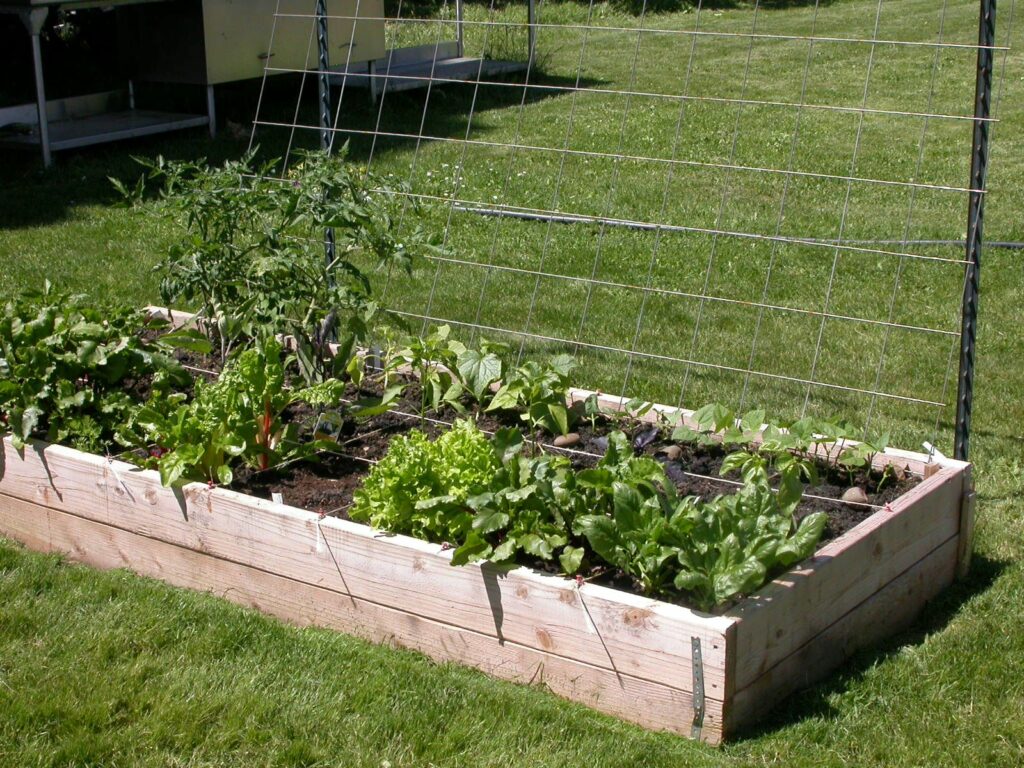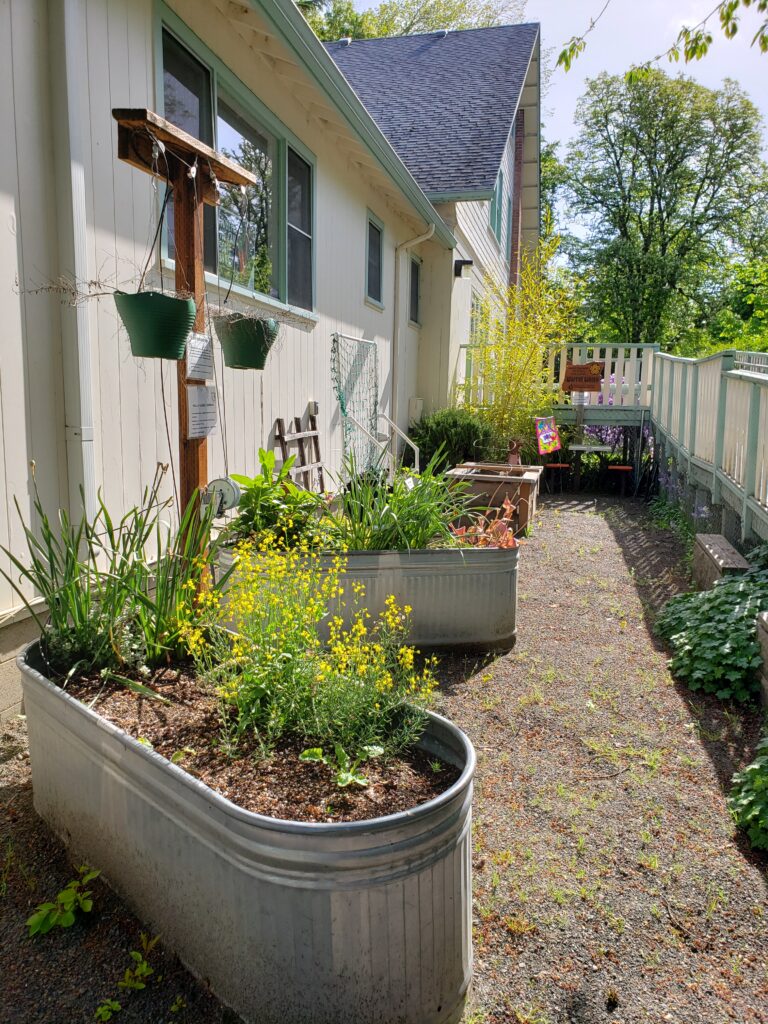Climate Trackers
I like to think of gardeners as the original storm chasers. We can spot a change in humidity, temperature, scent and know if something is coming, and whether we should cover those tender seedlings, bring in the pots of zonal denial tropicals, or if we need to do an extra watering of the new plantings before tomorrow’s anticipated record high temperatures. A gardener is witness to the climate first hand, and many Master Gardener volunteers use these great skills as front row reporters on climate and climate change as part of the OSU Extension Oregon Season Tracker (OST) citizen science program reporting precipitation with national partner CoCoRaHS (Community Collaborative Rain, Hail and Snow Network).
Through CoCoRaHS, volunteers of all ages and background in all fifty states participate by measuring and mapping precipitation (rain, hail and snow). They share their precipitation measurements, providing important data for natural resource, education and research applications. Here in Oregon we’ve had over 70 Master Gardener volunteers join Oregon Season Tracker, active and engaged with reporting their precipitation, counting towards their hours of service in the Master Gardener program.

Shari Bosler, a Master Gardener in the Central Gorge region, collects precipitation data throughout the year. She shares her information with her local Master Gardener chapter, and with more participants sharing their data through the CoCoRaHS network, she’s able to see what’s happening throughout the region. Shari says “It’s been fun to total the amount of snow we receive (though it’s a bit less than fun to be the mad scientist at 7am to melt snow, then measure) using a white board.” But she knows she’s part of a larger network all contributing to capturing good local data for scientists and researchers across the country, and that’s exciting. This summer she learned she had totaled 2,614 observations to the network.
Master Gardener volunteers make great partners in capturing this data according to Jody Einerson of Oregon Season Tracker (OST) at OSU extension. “OST citizen science volunteers are collecting precipitation and plant phenology data from home that is contributed to databases operated by our national partners,” she says. “MG’s have been a great fit with the OST program, as we share a common interest in plants and weather connections.”
Gardening Water-Wise
Amy Jo Detweiler, OSU Extension horticulturist and associate professor, also coordinates the Master Gardener Program in Central Oregon. Her publication, Water-wise Gardening in Central Oregon (revised this past June) is a vital resource for successful gardening with little water and includes the seven steps of water-wise gardening, along with planting recommendations from trees to shrubs to ornamental grasses.
“As we continue to see a consistent pattern of drought in the western United States, we need to balance what our home and commercial landscapes can and should look like with a focus on water conservation and water quality. Landscapes add value, beauty, and livability to our homes and communities, and keeping them water-wise is a critical part of being a good steward in our region.”
Water-wise Gardening in Central Oregon
Central Oregon Master Gardener volunteers helped to design, install and now maintain Hollinshead Waterwise Garden in Bend. They do cross programming with the City of Bend Water Conservation program to deliver classes related to water-wise gardening (in normal years). Master Gardeners also maintain water-wise plants at the OSU Demonstration Garden in Redmond. Both gardens have educational signs that depict water use fire-resistance, irrigation types, etc. The water-wise materials serve as materials for classes taught by Master Gardener volunteers.
Wildfires
Almost all of our Master Gardener volunteers felt the effects of wildfires this year, and we know that means our gardens, too. Master Gardener networks fielded queries and responded with science-backed information thanks to materials produced by Brooke Edmunds, OSU Extension Community Horticulturist (and Master Gardener Coordinator) in Linn and Benton Counties and assistant professor (practice) in the OSU Department of Horticulture. What should I do about the wildfire ash covering my garden? addressed exactly that question, and along with social media materials in English and Spanish, Master Gardener volunteers made sure the information was passed on into communities right when they were needed the most.

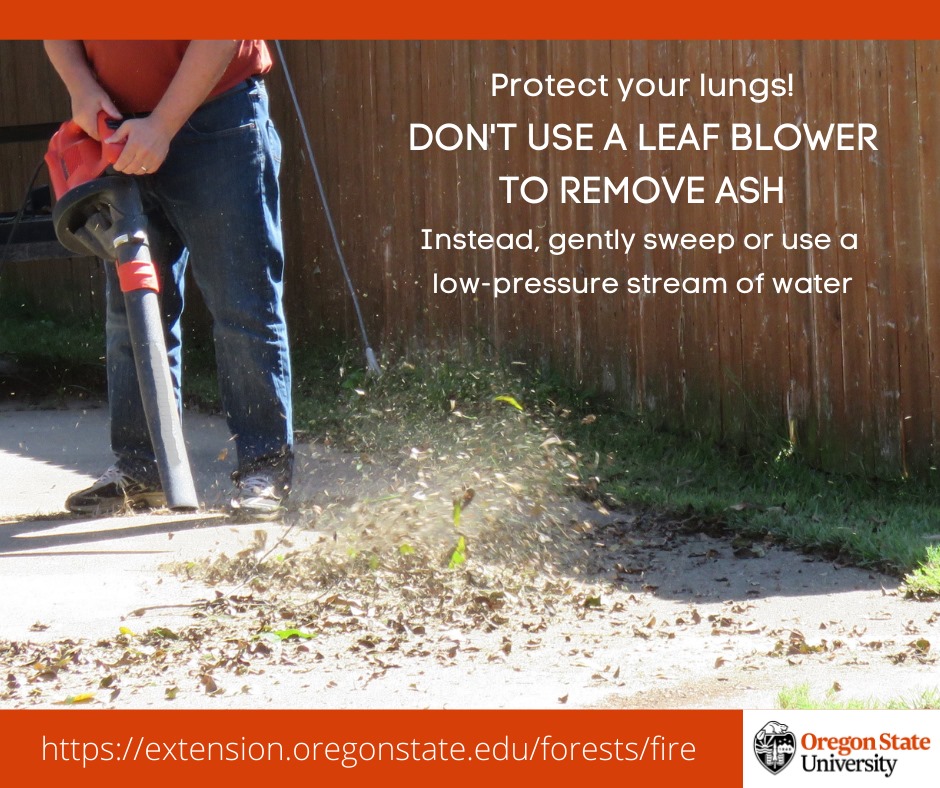
Today is Day 4 of Celebrate Master Gardener Week, and we hope you can make it to this evening’s “State of the Statewide Master Gardener Program” talk being given by Gail Langellotto. The presentation will review recent accomplishments and points of pride, current challenges and opportunities, and an overview of what is to come in 2021. And study up for tomorrow night’s Insect Trivia using both Zoom and some technology called Slido. Register here!


